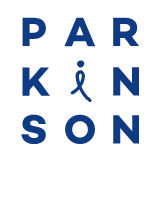- Parkinson’s disease
- Services offered
Free, confidential and bilingual
Opening hoursMonday to Friday : 8:30am – 4:30pm
Saturday and Sunday : closedFor urgent information outside service hours, you can refer to the Info Santé line by calling 8-1-1.
- Research commitment
- Get involved
- Donate
- About us
Home > Parkinsons Disease > Diseases Related to Parkinson’s Disease
Parkinson's Related Diseases
People commonly associate tremors to Parkinson’s disease. However, other neurological conditions share many symptoms with Parkinson’s and can be confused with it. It is important to be able to distinguish these different diseases.
In the early stages of the disease, differentiating between Parkinson’s disease and other related diseases can be difficult. Conditions other than Parkinson’s share symptoms such as:
- Tremors
- Dysphagia
- Sleep disorders
- Cognitive disorders
- Dementia
- Hallucinations
- Slow movements
- And more
To differentiate between Parkinson’s disease and other diseases, the physician relies on the cause of symptoms, their location, their progression, the presence of other symptoms that are not typical of Parkinson’s disease, or imaging tests.
The following conditions are Parkinson’s related diseases
Essential tremor
Tremors are the only symptom of essential tremor. People with this condition do not experience slow movements, rigidity or walking difficulties typical in Parkinson’s disease.
The hands are the main targets of tremors, but the head and voice can also be affected.
Unlike Parkinson’s disease, tremors affect both hands and do not decrease with movement, such as when holding a cup or writing.
These types of tremors, which are 5 times more frequent than Parkinson’s disease, have a strong hereditary component.
Normal pressure hydrocephalus
Normal pressure hydrocephalus is caused by an accumulation of fluid in the brain. A brain imaging test can differentiate it from Parkinson’s disease.
This neurological condition usually involves symptoms shared with Parkinson’s disease such as difficulty walking, cognitive problems, dementia and urinary problems.
Drug-induced Parkinson's disease
Some medications can cause reversible Parkinson’s syndrome. These drugs block the activity of dopaminergic neurons, artificially causing motor symptoms similar to those of Parkinson’s disease.
Medications that can cause this syndrome are usually prescribed to treat :
- Severe psychiatric disorders
- Nausea and intestinal mobility problems
- Migraines
- Tourette’s syndrome
Stopping these medications makes the symptoms disappear.
Parkinsonian syndromes
Parkinsonian syndromes are a group of rare diseases that cause symptoms of Parkinson’s disease, such as slow movements, tremors, muscle stiffness and balance disorders.
In these syndromes, severe symptoms are added to the typical symptoms of Parkinson’s disease.
- Progressive supranuclear palsy:frequent falls, difficulty moving the eyes, and emotional and personality changes
- Multiple system atrophy: Dizziness, difficulty keeping balance, fainting, constipation, erectile dysfunction and urinary retention
- Corticobasal degeneration: Severe incoordination of movements, accentuated stiffness, jerks or spasms, usually of the hands
- Lewy body disease: Cognitive decline, hallucinations and loss of alertness and attention
In the early stages of the disease, diagnosis is difficult. The presence of non-typical symptoms of Parkinson’s disease such as impaired vision, early falls or significant cognitive impairment will lead to a diagnosis of Parkinsonian syndrome.
Parkinsonian syndromes often progress quicker than Parkinson’s disease and, unfortunately, few therapeutic interventions are effective in alleviating the condition. Beyond the neurologist’s support, the affected person can greatly benefit from the help of other health professionals such as physiotherapists, occupational therapists, neuropsychologists and speech therapists.

